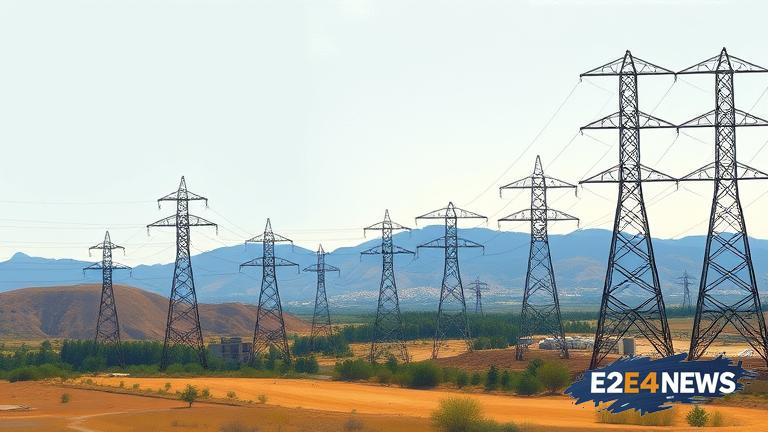Turkey has successfully secured a substantial loan of $748 million from the World Bank, aimed at upgrading and modernizing its electricity grid. This significant investment is expected to enhance the overall efficiency and reliability of Turkey’s energy infrastructure, aligning with the country’s goals for sustainable development and reduced carbon footprint. The project, supported by the World Bank, focuses on improving the transmission and distribution systems, ensuring a more stable and efficient supply of electricity to meet the growing demands of the population and industry. By upgrading its grid, Turkey aims to reduce energy losses, improve the quality of electricity supply, and integrate more renewable energy sources into the national grid. This move is part of Turkey’s broader strategy to diversify its energy mix, decrease dependence on fossil fuels, and contribute to global efforts against climate change. The World Bank’s financial support underscores the international community’s confidence in Turkey’s economic and environmental policies. The loan will be utilized to implement advanced technologies and smart grid solutions, enabling better management of energy distribution and consumption. Furthermore, the project includes components designed to increase energy access and affordability, particularly for disadvantaged communities. The upgrade of the electricity grid is also anticipated to attract private sector investment in the energy sector, fostering economic growth and job creation. Turkey’s collaboration with the World Bank on this project demonstrates its commitment to adopting international best practices in energy sector reform and environmental sustainability. The implementation of the project will be closely monitored to ensure that it meets the highest standards of transparency, accountability, and environmental stewardship. As Turkey continues to grow economically, the demand for electricity is expected to rise, making the modernization of the electricity grid a critical infrastructure project. The World Bank’s assistance will play a pivotal role in helping Turkey achieve its energy security goals while promoting sustainable development. This project aligns with Turkey’s vision for a more sustainable and environmentally conscious future, reflecting its dedication to the well-being of its citizens and the global community. The loan agreement marks a significant milestone in the partnership between Turkey and the World Bank, highlighting their shared commitment to addressing global challenges through collaborative efforts. In the context of global energy trends, Turkey’s move to upgrade its electricity grid positions the country as a leader in the region, embracing innovation and sustainability in the energy sector. The project’s emphasis on integrating renewable energy sources and reducing energy waste is particularly noteworthy, as it contributes to the global dialogue on climate action and sustainable energy solutions. Through this initiative, Turkey aims to create a model for other countries to follow, demonstrating how strategic investments in energy infrastructure can drive economic development and environmental protection. The successful implementation of the project will not only benefit Turkey but also serve as a case study for international cooperation in achieving sustainable development goals. As the world transitions towards cleaner and more efficient energy systems, Turkey’s decision to invest in its electricity grid underscores its readiness to adapt to future energy demands and challenges. The collaboration between Turkey and the World Bank on this critical infrastructure project sets a precedent for future partnerships aimed at driving sustainable growth and development. In conclusion, the $748 million loan from the World Bank to Turkey for the upgrade of its electricity grid is a landmark agreement that promises to transform the country’s energy landscape, contributing to a more sustainable, efficient, and environmentally friendly future.
